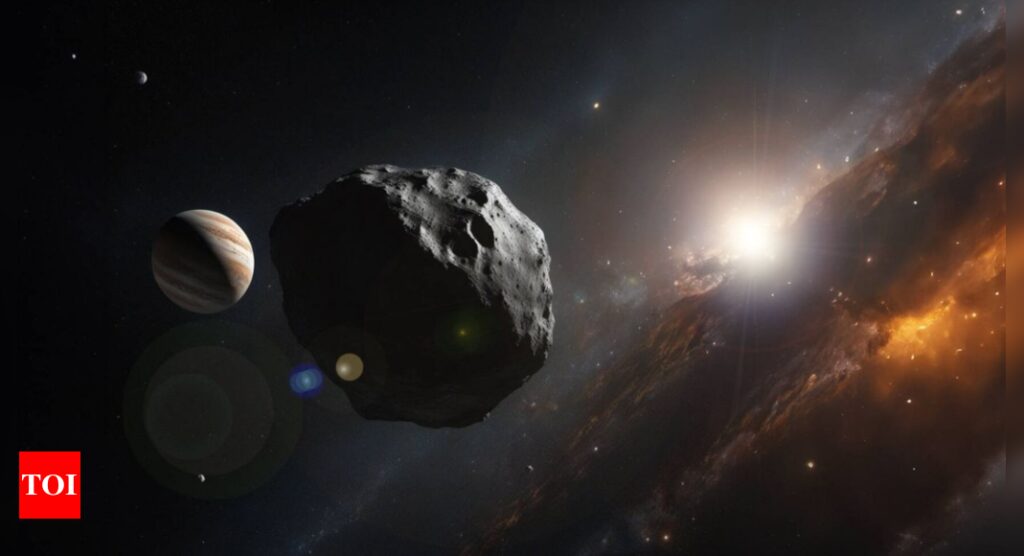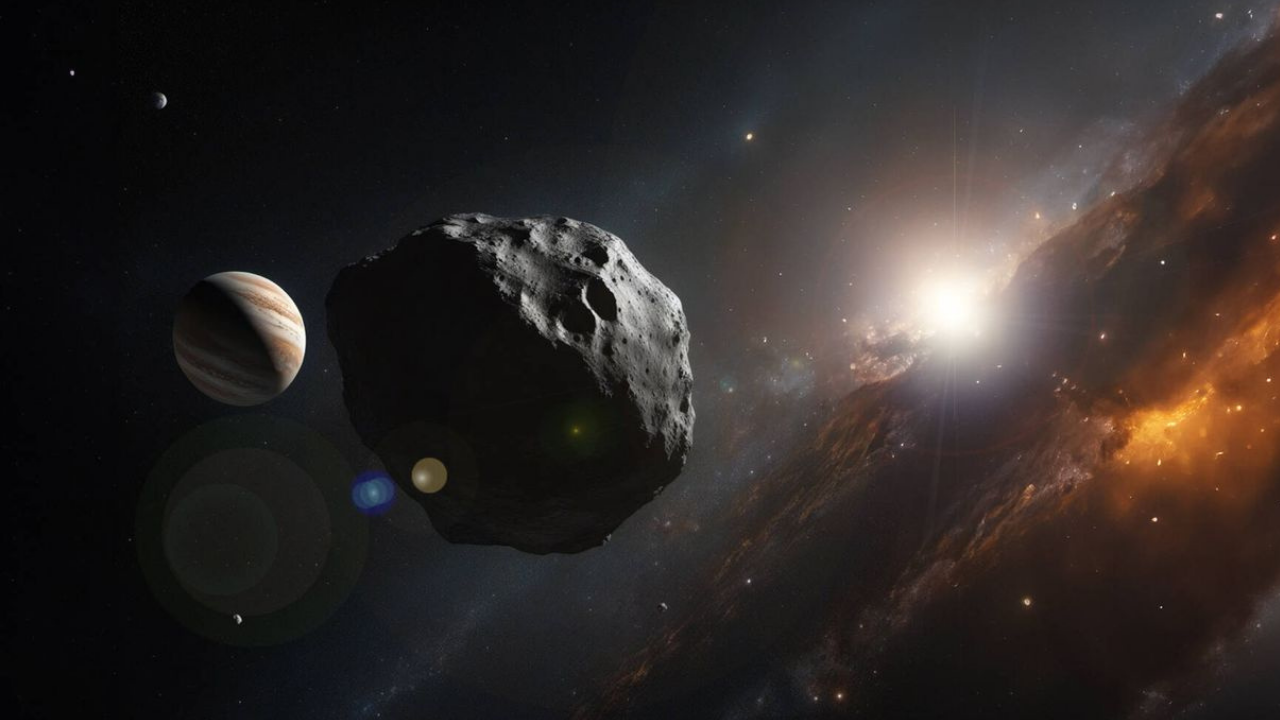[ad_1]
NEW DELHI: As Nasa‘s Psyche spacecraft makes its way to an asteroid of the same name, a metal-rich world that may contain ore worth an astonishing $10 quintillion, there is renewed interest among scientists to study space objects that may be hiding never-before-seen heavy elements.
One such object of interest is 33 Polyhymnia, an asteroid which appears to be denser than even the heaviest known elements on the periodic table.
The densest naturally occurring stable element on Earth is the metal osmium. At room temperature, it forms a solid with a density of 22.59 grams per cubic centimeter.
The original measurements of 33 Polyhymnia suggest a weight of 75.28 g/cm3, a number so dense that the researcher who took those measurements said that the results were unrealistic.
The highest atomic number element in the periodic table is 118 but scientists believe that 33 Polyhymnia could be hiding an element of atomic number 164.
It’s unknown whether elements with more than 118 protons would even be stable – they’ve certainly never been observed, either in the wild or in laboratory settings.
But theoretical work suggests that there’s an “island of nuclear stability” around atomic number 164, where superheavy elements would not be as prone to radioactive decay and may stick around, at least for a time.
Experts believe that the theoretical element could have a density range of 36-68.4 g/cm3.
The asteroid is nestled in the asteroid belt in the 342-million-mile expanse between Mars and Jupiter — the same belt where Psyche is located.
Nasa is currently in a rush to obtain samples from asteroids found in our Solar System. Earlier this week, they announced the presence of water and carbon in a sample obtained from asteroid Bennu.
It is only a matter of time before asteroids like 33 Polyhymnia catch the attention of Nasa and entrepreneurs.
One such object of interest is 33 Polyhymnia, an asteroid which appears to be denser than even the heaviest known elements on the periodic table.
The densest naturally occurring stable element on Earth is the metal osmium. At room temperature, it forms a solid with a density of 22.59 grams per cubic centimeter.
The original measurements of 33 Polyhymnia suggest a weight of 75.28 g/cm3, a number so dense that the researcher who took those measurements said that the results were unrealistic.
The highest atomic number element in the periodic table is 118 but scientists believe that 33 Polyhymnia could be hiding an element of atomic number 164.
It’s unknown whether elements with more than 118 protons would even be stable – they’ve certainly never been observed, either in the wild or in laboratory settings.
But theoretical work suggests that there’s an “island of nuclear stability” around atomic number 164, where superheavy elements would not be as prone to radioactive decay and may stick around, at least for a time.
Experts believe that the theoretical element could have a density range of 36-68.4 g/cm3.
The asteroid is nestled in the asteroid belt in the 342-million-mile expanse between Mars and Jupiter — the same belt where Psyche is located.
Nasa is currently in a rush to obtain samples from asteroids found in our Solar System. Earlier this week, they announced the presence of water and carbon in a sample obtained from asteroid Bennu.
It is only a matter of time before asteroids like 33 Polyhymnia catch the attention of Nasa and entrepreneurs.
[ad_2]
Source link











More Stories
We can’t wait to face India in the final: Pat Cummins | Cricket News
Railways plans 3,000 additional trains in next 4-5 years to minimise number of waitlisted tickets | India News
Faridabad: Man dies after ‘falling from hotel room window’ while partying with friends